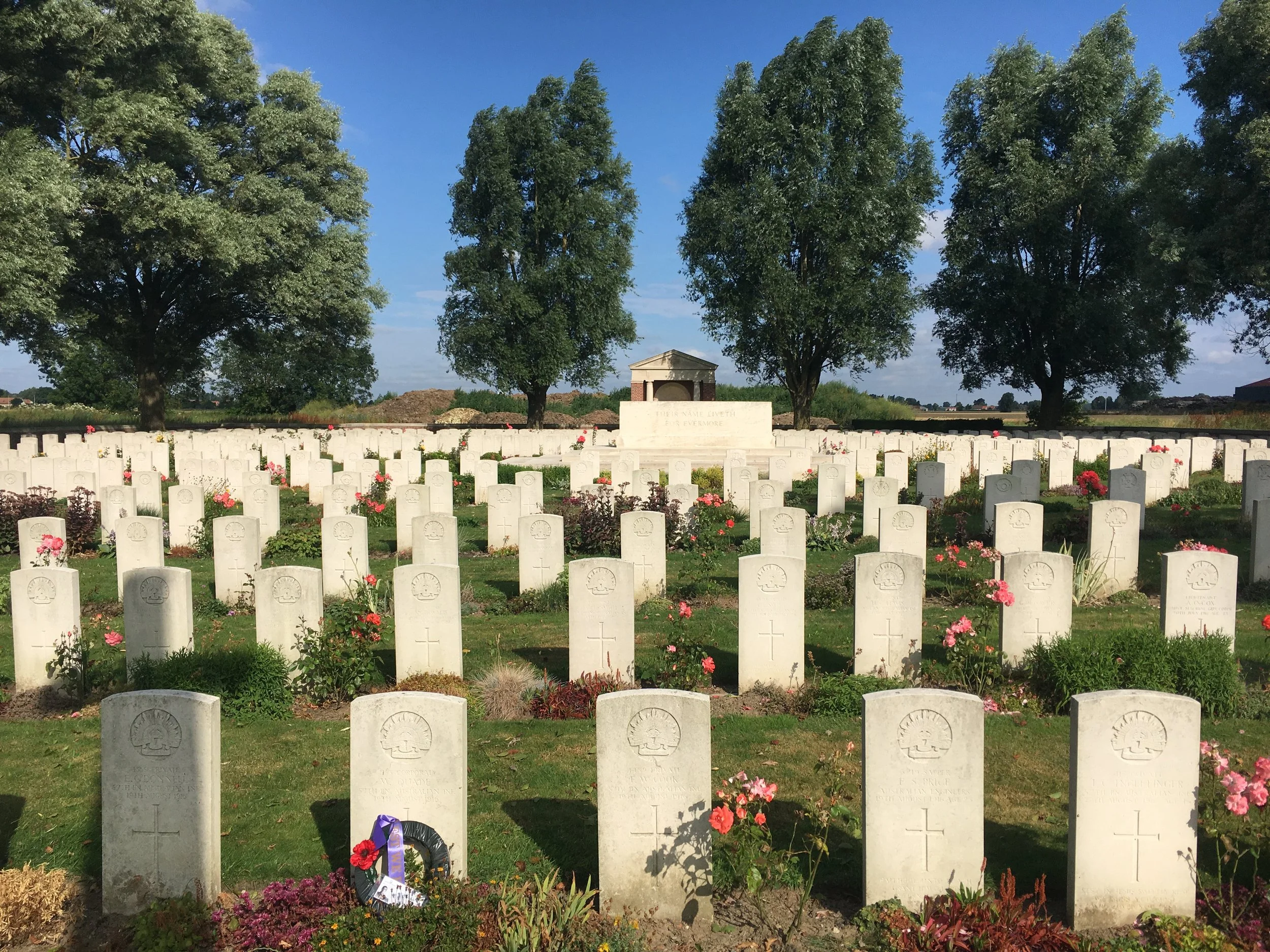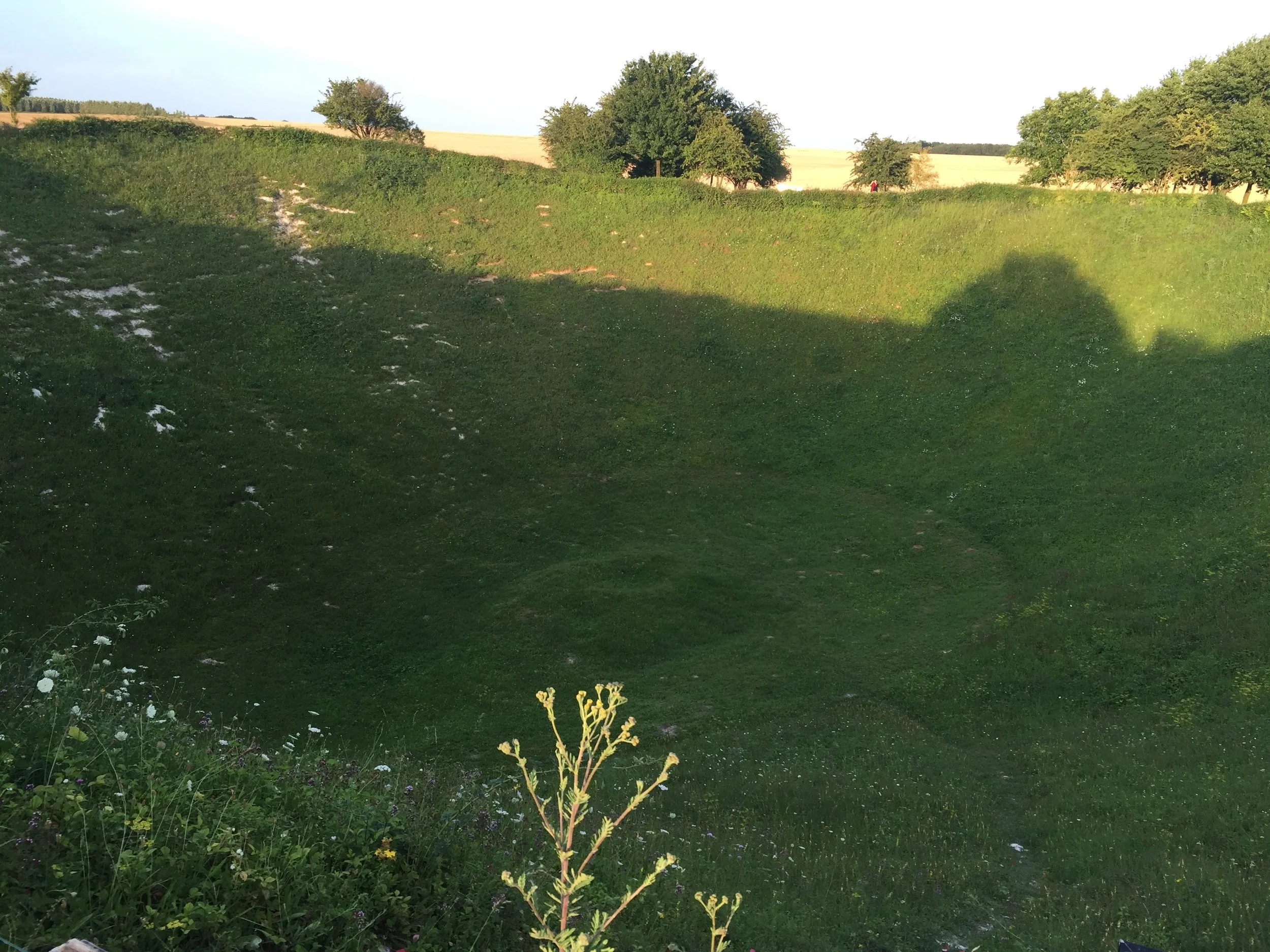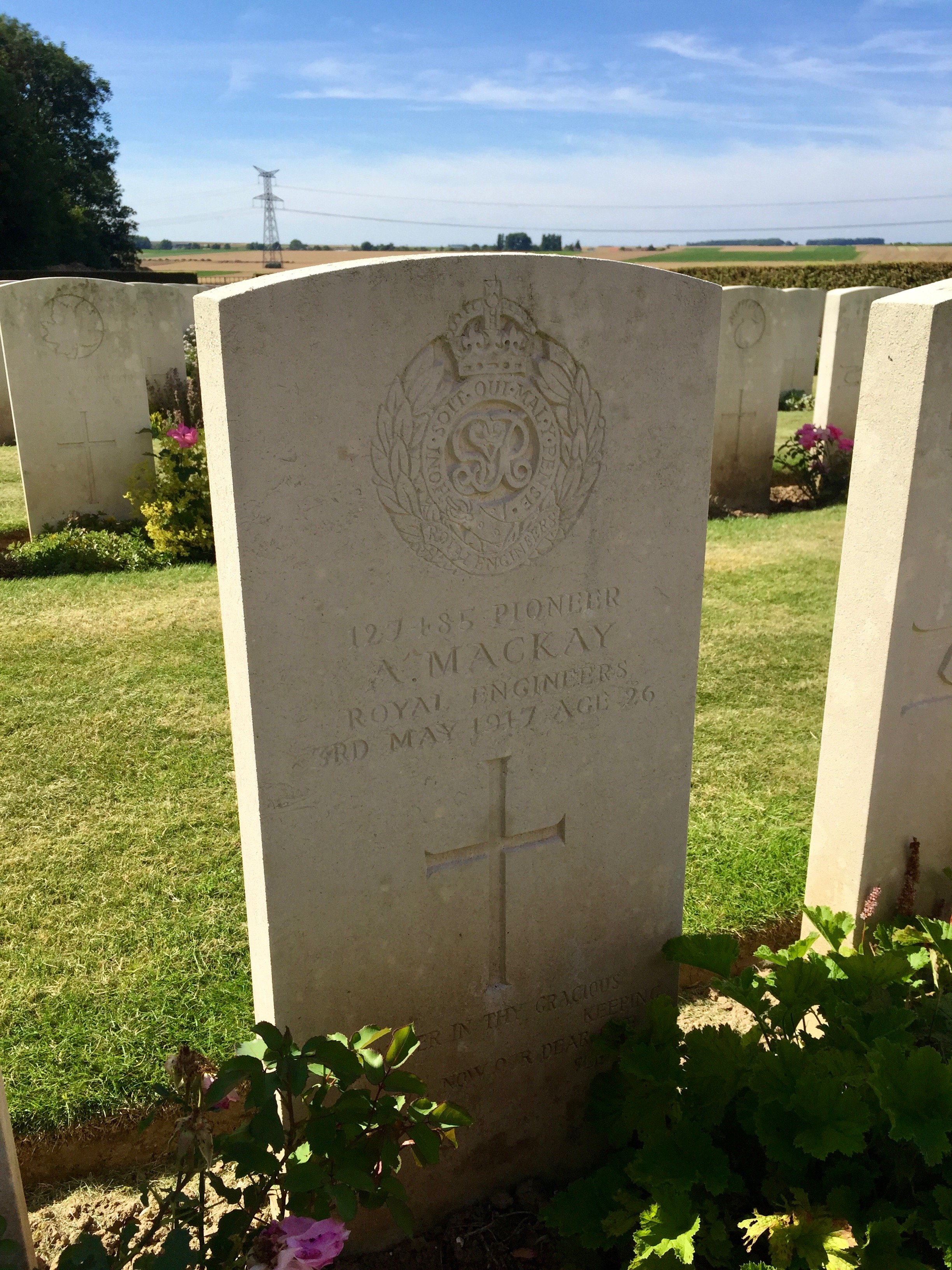In the London summer of 2016, my parents travelled from Australia to the UK for my Interfaith Ordination Ceremony. In the weeks that followed, we set off on an ancestral pilgrimage of sorts - to the battlefields of France. This journey had been lovingly crafted by my Dad, who had spent months mapping the footsteps of his great-uncle who fought and died in World War I. It was a deeply personal mission to walk the ground where he had walked, to see with our own eyes what he might have seen, to be together in the very place where his life ended 100 years ago.
What we hadn’t expected was just how closely intertwined our ancestry really was. My mum, a first-generation Aussie whose parents emigrated by ship to Australia from Scotland in the 1950s, discovered that two of her great-uncles had also fought and died in these same battlegrounds. Incredibly, their graves lay in neighbouring villages in the north of France - just a few kilometres from my Dad’s great-uncle in Pozières. Was it a profound coincidence? That my Scottish and Australian ancestors, from entirely different hemispheres, had died fighting side by side? Or perhaps it’s simply the sobering reality of an entire generation of young men lost to this war. I’m still not sure.
As we moved from battleground to battleground, graveyard to graveyard, memorial to memorial - I found myself overcome not only by the magnitude of the human life lost, but by the memory still held in the land itself. Much to my parents puzzled looks - I’d arrive at these historic battlegrounds and instinctively feel the need to lay belly to the earth - listening with my whole being to the story she still held.
Her hills and plains pocked and barren, more than a century after being blasted apart from shellfire and explosions. Her soil holding the endless bloodshed of thousands. Her deep roots & minerals holding the memory of all that happened here. You could truly feel it. The land remembered. Day after day we’d arrive at a new battleground. We’d lay poppies at the remembrance walls and again, I lay belly to the earth. My befuddled parents growing somewhat used to this odd ritual.
The Battle of Pozières, fought between July and August 1916, was a significant and devastating chapter in the Somme offensive during World War I. Located in northern France, the village of Pozières became a key objective due to its strategic position on a ridge held by German forces. Australian troops, including my great-great uncle, Private Elton Edward Rogers, played a central role in the battle, with the 1st, 2nd, and 4th Divisions of the Australian Imperial Force rotating through relentless and brutal fighting. Over the course of six weeks, the Australians endured constant artillery bombardment and fierce resistance, ultimately capturing the village but at an enormous cost. More than 23,000 Australian soldiers were killed or wounded at Pozières, making it one of the most tragic and defining battles for Australia on the Western Front.
The landscape was left cratered and shattered, and the memory of the sacrifice endures. To this day, the people of Pozières hold deep respect and reverence for the Australian soldiers who fought and died there. The Australian flag flies above memorials, and visitors often find heartfelt tributes and poppies laid by locals and travellers alike, honouring a sacrifice that has never been forgotten.
On our final day - our final battlefield, our final cemetery - I turned around and saw something that stopped me in my tracks. My sweet Dad. Lying belly to the earth. He, too, was listening. Honouring. Pouring all his reverence, his gratitude, his love, into the very heart of that sacred ground. A moment I’ll never forget. A memory held in my own bones now. Because sometimes, the earth remembers what we cannot bear to.
As I write this on ANZAC Day 2025, nearly ten years have passed since this pilgrimage, yet the memories remain vivid - the quiet weight of those fields, the reverence in my father’s gesture, the stories held in the earth. But those wars are not just a distant memory - they are also happening right now, the wars still raging across our world - the lives lost daily, the families torn apart, the violence etched into new landscapes. I will never understand war. What I do understand is the importance of remembrance - not just to honour those who came before, but to let their stories stir something within us. To let them remind us that peace must be chosen, cultivated, and fiercely protected. May we listen to the past not to repeat it, but to transform it. And may we each do our part, however small, to shape a more peaceful world.
Lest We Forget
Private Elton Edward Rogers
Born 19/2/1894 in Sunny Corner, NSW
Enlisted 28th August 1915, aged 21.
Killed in action in Pozières, France on the 24th July, 1916, Aged 22.
First Batallion, 14th Reinforcement.
Son of James and Mary Rogers of Campsie, NSW
Corporal George Mackay, Royal Scots
Died 23rd May 1915, Aged 19
Son of George and Jessie Mackay of Edinburgh
Private Angus Mackay. Royal Engineers
Died 3rd May 1917, Aged 26
Son of George and Jessie Mackay of Edinburgh










